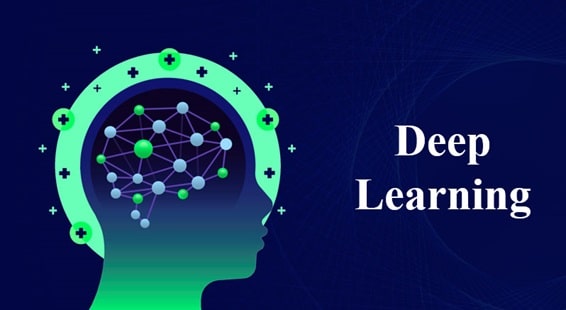Deep Learning emerges as a foundational technology, transforming how machines interpret, learn from, and interact with complex data. At its core, Deep Learning mirrors the intricate neural networks of the human brain, empowering computers to autonomously detect patterns and make decisions from vast amounts of unstructured information. This groundbreaking field has driven significant advancements across various sectors, including computer vision, natural language processing, healthcare diagnostics, and autonomous driving.
As we delve into this introductory exploration of Deep Learning, we will uncover its fundamental principles, diverse applications, and the underlying mechanisms that enable machines to achieve human-like cognitive abilities. This overview serves as a gateway to understanding how Deep Learning is reshaping industries, pushing the boundaries of AI, and paving the way for a future where intelligent systems can perceive, understand, and innovate autonomously.
Deep Learning: An Overview

Deep Learning, a method within AI, trains models that can identify complex patterns in images, text, sound, and other data, leading to accurate insights and predictions. Deep Learning techniques automate tasks that traditionally require human intelligence, such as image description or sound transcription. The overarching goal of AI is to train automated machines to mimic human intelligence.
This technology powers many AI-driven applications used in everyday life, such as:
- Digital assistants
- Voice-activated television remotes
- Fraud detection systems
- Automatic facial recognition
Pursuing an online Deep Learning Course is crucial for advancing your education and career. These courses provide essential skills that prepare you for significant roles in AI, empowering you to contribute to innovative solutions in both industry and society.
Advantages of Learning the Foundations of Deep Learning
- High Accuracy:
Deep Learning algorithms achieve state-of-the-art performance in tasks like image recognition and natural language processing.
- Automated Feature Engineering:
Deep learning automatically discovers and learns relevant features that eliminate any room for human errors and repetitions.
- Scalability:
Deep Learning excels at learning from massive amounts of data, making them ideal for big data applications.
- Flexibility:
These models are highly versatile and applicable to a great range of diverse tasks, such as working with images, text, or speech. Deep Learning can adapt to various types of data.
- Continual Improvement:
Deep Learning models continuously enhance their performance as they are exposed to more data.
How Exactly Does Deep Learning Function?
Primary Functions of Deep Learning
- Deep learning is a part of machine learning that uses artificial neural network design. These artificial neural networks, commonly referred to as deep neural networks (DNNs) are designed to simulate the detailed decision-making processes of the human brain. Deep learning is a fundamental method supporting most machine learning and artificial intelligence systems in use today, allowing automated machines to accomplish duties that usually require human intelligence.
- Artificial neural networks (ANNs) in the deep learning method aim to replicate the functions of the human brain. They do this by applying data input measurements that serve as the network’s neurons. These interconnected nodes cooperate to identify, organize, and define items within the data.
- A wholly connected Deep Neural Network’s development includes an input layer, one or more concealed layers, and an output layer. Neurons in each layer gather input from the layer prior and provide output to the next layer. This transformation chain continues until the last layer delivers the final network output. Each layer of the network applies a series of nonlinear alterations to the input data, helping the network learn multiple representations of the data.
- Data flows through the network via forward propagation. The input layer ingests the data, which is then processed through the network’s hidden layers. The output layer generates the final result, making predictions or classifications based on the patterns it has learned.
Computing Power and Deep Learning
Deep Learning requires substantial computing power to process and analyze large volumes of data. High-performance graphical processing units (GPUs) are particularly well-suited for this task, as they can handle numerous calculations simultaneously across multiple cores with significant memory capacity. Managing multiple GPUs on-premises can be resource-intensive and costly to scale, which is why many organizations turn to cloud-based solutions.
Build an Advancing Career as a Deep Learning Professional
Technical Skills for Deep Learning Professionals
- Programming Proficiency:
Deep learning engineers must master programming languages like Python, Java, and C++. A strong understanding of data structures and algorithms is essential for developing effective AI and machine learning solutions.
- Mathematical Expertise:
A solid grasp of mathematics is crucial, with topics like linear algebra, statistics, and calculus being integral to creating deep learning algorithms and models.
- Data Modeling and Evaluation:
Proficiency in data modeling helps engineers identify patterns in complex data. To ensure model accuracy, engineers evaluate machine learning algorithms, such as classification and clustering.
- Neural Networks:
Understanding the fundamentals of neural networks is vital. Engineers must grasp how various layers function together to simulate the human brain.
- Natural Language Processing (NLP):
NLP skills are essential for enabling computers to understand and process human language. Engineers should be familiar with NLP libraries and their applications in generating insights from text.
Soft Skills for Deep Learning Experts
- Communication: Effective communication is essential for conveying complex ideas and collaborating within teams.
- Teamwork: Successful engineers integrate team efforts, fostering a productive and collaborative environment.
- Time Management: Efficient time management ensures tasks are completed on schedule, enhancing productivity.
- Work Ethic: Dedication, punctuality, and self-discipline are key to achieving project goals.
- Leadership: Strong leadership skills inspire and guide teams toward meeting project objectives.
Top Deep Learning Career Opportuitites
- Deep learning engineer
- Deep learning R & D engineer
- Deep learning research intern
- Deep learning developer
- Junior data scientist
- Computer vision engineer
- Deep learning engineer
Conclusion
Deep Learning algorithms have transformed various industries, including healthcare, finance, autonomous vehicles, and natural language processing. As computational power grows and datasets expand, the possibilities for Deep Learning are vast.
Nonetheless, Deep Learning holds the promise of reshaping our future, enabling machines to learn, adapt, and tackle complex problems with unprecedented speed and scale. Deep learning is a quickly expanding field with increasing career opportunities.
Enrolling in an online Deep Learning Certification Course is crucial for enhancing your education and advancing your career. These courses provide essential skills, preparing you for influential roles in AI and enabling you to contribute to innovative solutions in both industry and society.
Santosh Kumar, the author behind IndiasStuffs.com, is passionate about sharing valuable insights on a variety of topics, including lifestyle, technology, and Indian culture.
Page Contents

